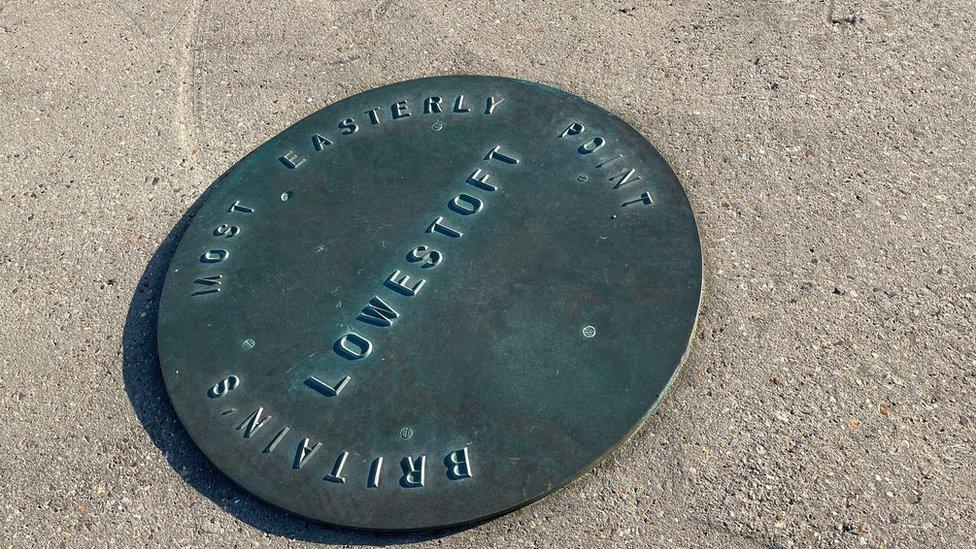Buffalo Bill: Show marks anniversary of when the Wild West came to the East
- Published
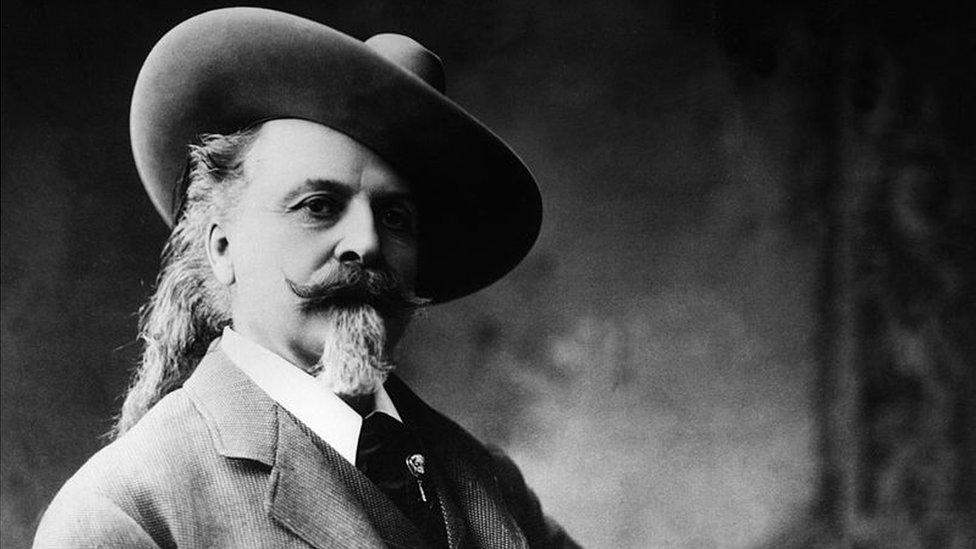
William Cody - aka Buffalo Bill - brought his Wild West show to Lowestoft, in Suffolk in September 1903
The anniversary of the day the Wild West came to the East is being marked in a new stage production.
Congress tells the story of how Buffalo Bill - aka William Cody - brought his Wild West show to Lowestoft, in Suffolk in September 1903.
Writer, John Ward, said he was inspired to research the event after coming across Cody's grave, while in the US.
He said he was "intrigued" about what native Americans would have made of Lowestoft.
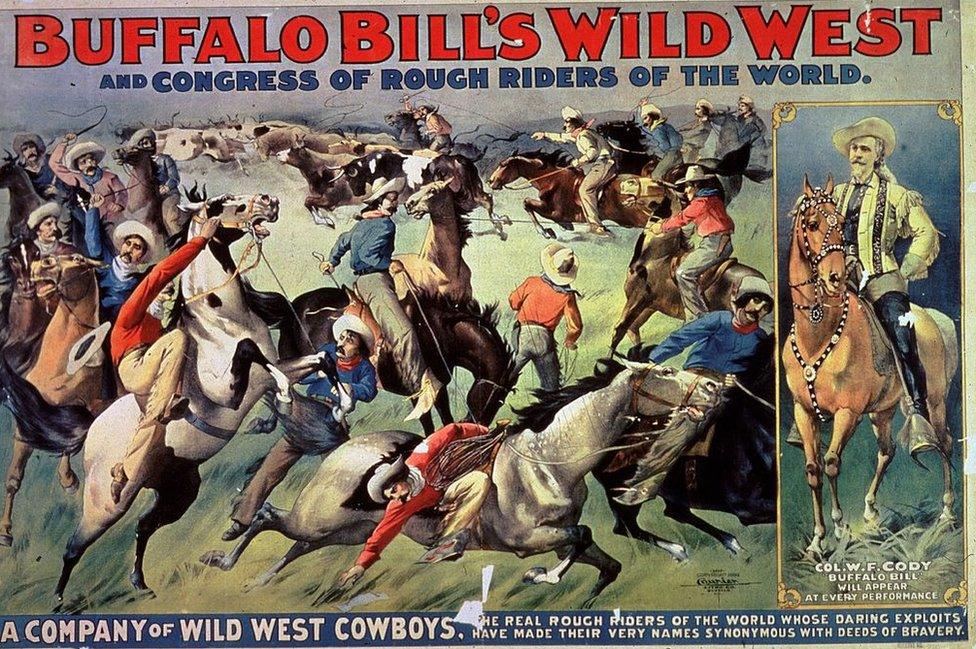
Buffalo Bill created his own Wild West show - an outdoor entertainment featuring native Americans, cowboys and skilled riders from some 40 nations
Cody received the nickname Buffalo Bill after the American Civil War, when he had a contract to supply Kansas Pacific Railroad workers with buffalo meat.
He later created his own Wild West show - an outdoor entertainment featuring native Americans, cowboys from the prairies and skilled riders from some 40 nations.
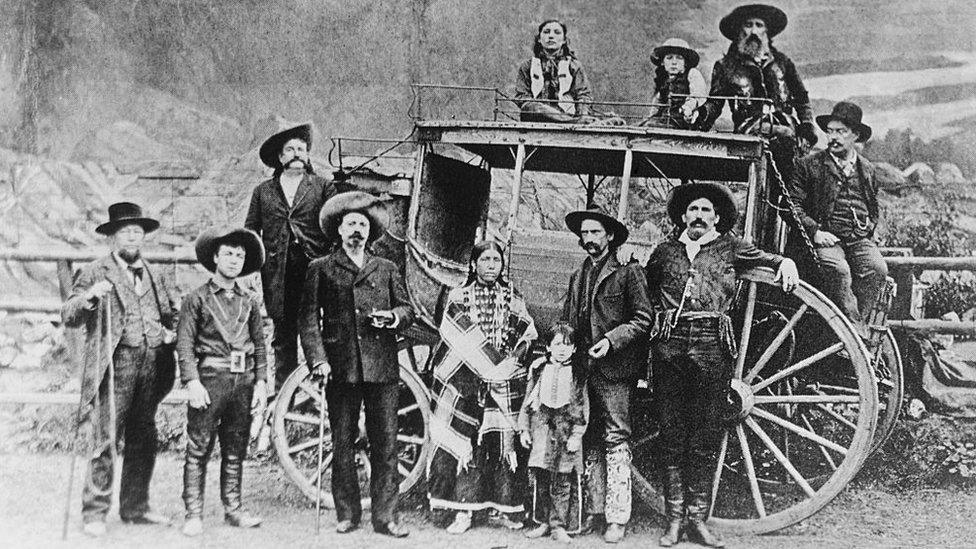
The original Wild West Show started small
Travelling from Inverness to Land's End on four tours of the UK between 1887-1904, the cast of hundreds played at Queen Victoria's Golden Jubilee in 1887 and was also staged throughout Europe.
On 8 September, 1903, the show came to Lowestoft with some 800 performers and supporting crew and 500 horses.
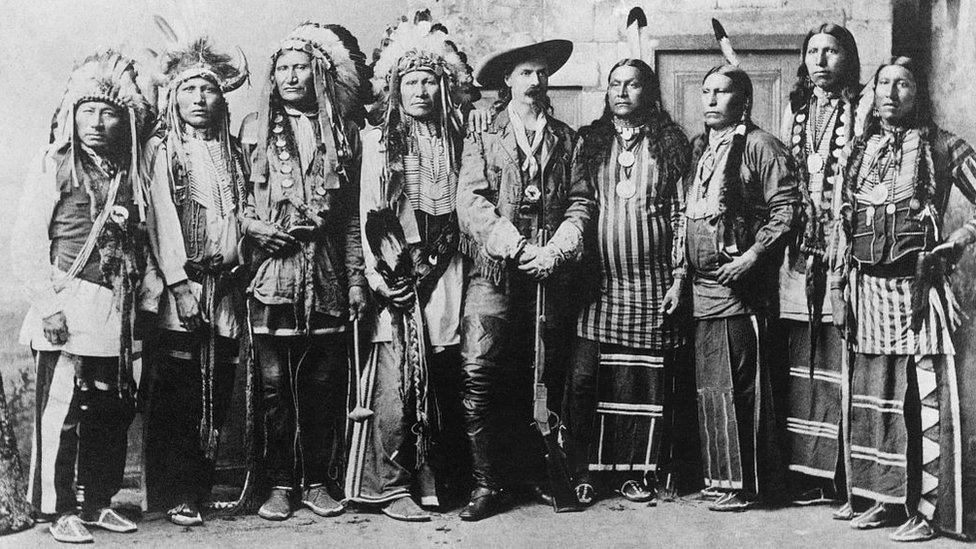
The cast included native Americans
Mr Ward said the "spontaneous" find of Cody's grave in Colorado and speaking to the curator at the small museum attached to it, led him to find Buffalo Bill a "very interesting person".
"The fact that he came to the most easterly point in the UK from the Wild West sparked my imagination," he said.
As a result, he has written a "fictional story based on facts" which centres on how the lives of Lowestoft fisherman and a native American brave intertwine.
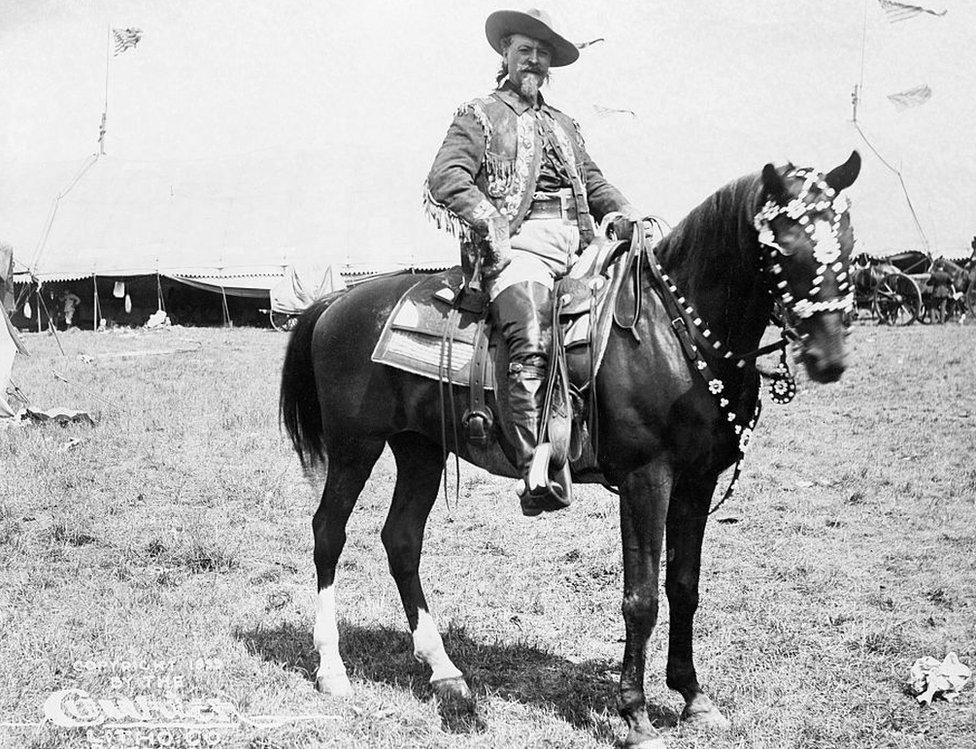
Cody received the nickname Buffalo Bill after the American Civil War, when he had a contract to supply railroad workers with buffalo meat
Congress is the first show to appear at new venue, The Grit, Lowestoft Arts and Heritage Building, and celebrates Thursday's anniversary.
It features storyteller Andy Jennings reading passages from Mr Ward's book, interspersed by new music he has written for the John Ward Trio, against a photographic backdrop of historical images and new art.
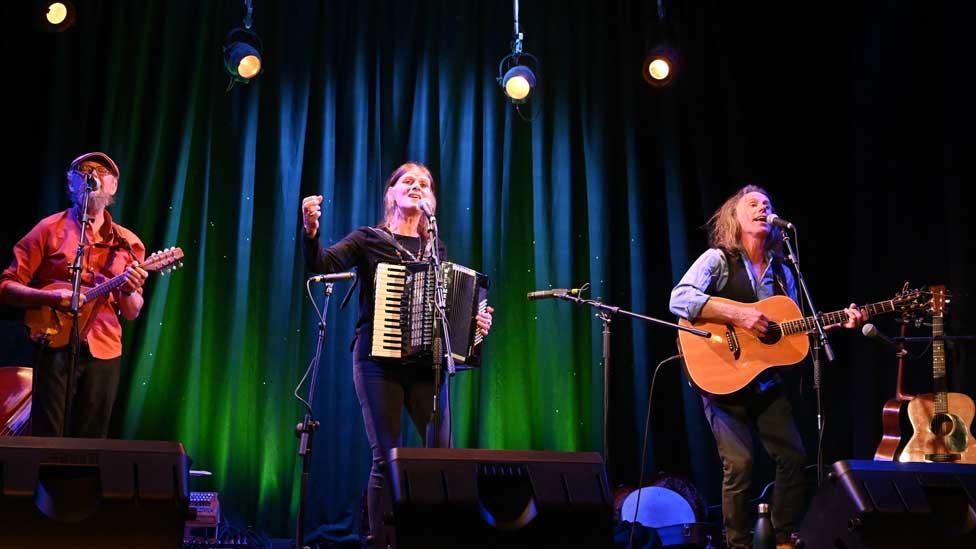
Congress features new music John Ward has written for his band
"What intrigued me was what would native Americans - and all the 40 other nations involved - have made of Lowestoft and what would the people of Lowestoft made of them," Mr Ward said.
"It's about people whose lives crossed, the common humanity of people who, on the face of it appear to have different lives, but share some things.
"But I have imagined how they reacted as there are no first hand accounts [of his visit].
"When I was researching I found most people hadn't realised it happened, so I'm hoping it might bring more information forward and find people who had heard accounts from relatives."

Find BBC News: East of England on Facebook, external, Instagram, external and Twitter, external. If you have a story suggestion email eastofenglandnews@bbc.co.uk, external
Related topics
- Published21 June 2022
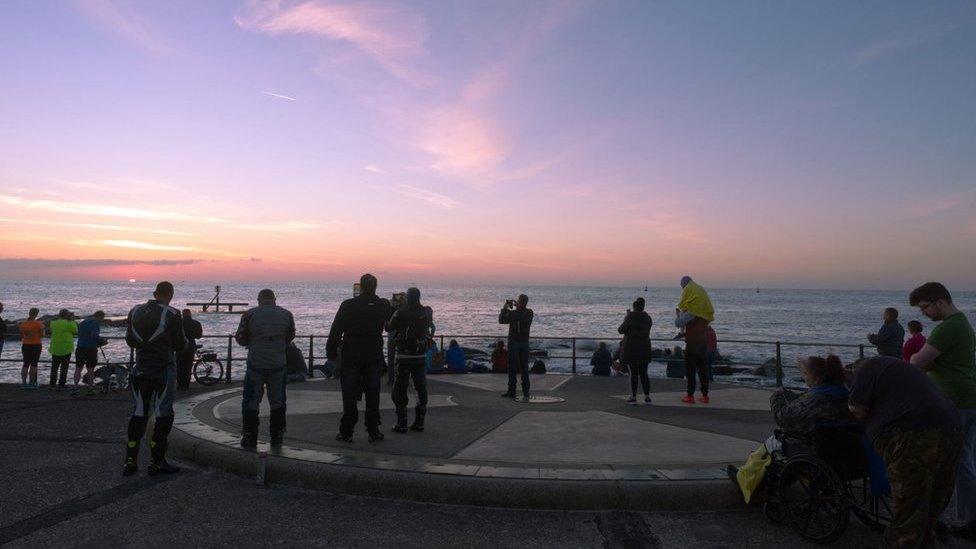
- Published3 November 2021
